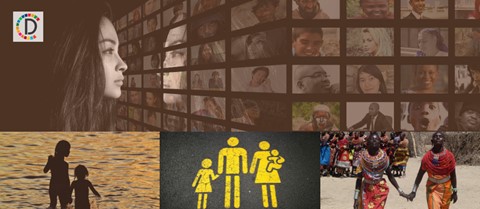As horrific rapes continue seven years after Nirbhaya, activists blame poor legal framework

- Country:
- India
When the shocking Nirbhaya case created massive outrage seven years ago with thousands taking to the streets in protest and the government was forced to strengthen the rape laws, people across the country were almost convinced that sexual violence would become a thing of the past. Sadly, what followed were even more harrowing incidents of girl children and women being raped, mutilated and often burnt to death. Soon after the December 16, 2012 incident, reports of two rape cases — one in June, 2013 (Kamduni, West Bengal) and another (Shakti Mills, Mumbai) in August that year were splashed across newspaper pages. On the eve of the hangings of the four convicts in the infamous Delhi case on Friday, women's rights activists and lawyers said poor legal framework and wrong priorities of the authorities were to blame for the country not becoming a better place for females to live in.
"The situation is not changing because it requires multiple inputs and law is one of them. There is nothing to show that in the legal system we are making long-term serious investment," lawyer Vrinda Grover told PTI. While in the fast-tracked December 16 case the courts took nearly four and a half years to convict the perpetrators, both the Kamduni rape case and the Shakti Mills case, also fast-tracked, remain pending in the Calcutta and Bombay High Courts respectively.
Grover said one of the reasons justice is delayed in rape cases is the "hopeless" investigation that often allows the accused to be out on bail, like in the 2014 Badaun case in which the three accused in the rape and murder of two cousins were granted bail due to lack of evidence. Similarly, in the 2018 Kathua case in which an eight-year-old girl was raped and murdered, one of the seven accused was acquitted owing to insufficient evidence. While three were sentenced to life imprisonment for 25 years, three others were awarded five years in jail for destruction of evidence.
BJP MLA Kuldeep Sengar was sentenced to life imprisonment in December, 2019, two years after he allegedly raped a minor girl. The verdict, which came after the victim's father died in custody, two of her aunts were killed in a road "accident", and the victim and her lawyer being critically injured, will now be reconsidered on May 4 after Sengar challenged his conviction in the Delhi High Court. "Most of the cases collapse because the investigation which is done is hopeless, proper evidence collection is not done, there is no victim-witness protection provided. In the absence of professional investigation, cases will end in acquittal," Grover said. The senior advocated added that there is also delay in gathering witnesses which can only be changed if there are more courts. The latest report by the National Crime Records Bureau noted that in 2018, 34,000 rapes were reported out of which only 27 per cent ended in conviction. Politician-activist Brinda Karat insists that the actual state of affairs concerning sexual violence in the country is worse.
"To me, it (27 pc conviction rate) is a vast overestimation. Look at it from a rape survivors' point of view. Rape cases take years in spite of assurances of fast track courts. Rape accused are out on bail. There are over one lakh pending cases of rape in the courts according to the NCRB. "This number increases, not decreases. So if you calculate the number of rape cases pending and then look at the number convicted within a specific time frame of say a year, then the conviction rate in India for the crime of rape is not more than 3 per cent. This is the shameful record," she told PTI. Karat said the "total lack of political will" was responsible for "victims getting victimized repeatedly" by the often "callous" attitude of law enforcement agencies and the "delayed and often distorted" processes of justice.
For instance, the four people arrested in connection with the rape-and-murder of a veterinarian near Hyderabad in November, 2019 were killed in an encounter with police without even a trial. "Why should there be a change unless we are actually intervening in situations which demand the change?" Grover asked, emphasising that the sole focus on the death sentence is not a deterrent. "Everybody knows there are four men about to be hanged but will it change anything on the ground? No," she said. According to Grover, it's not that death penalty given faster will be a deterrent because the largest number of cases don't move forward in the sluggish legal system. Therefore, there is no fear of the law and hanging a few men is not going to change anything, she said. "The government by focussing only on the death sentence is actually abdicating its duty and responsibility towards women," Grover said.
(This story has not been edited by Devdiscourse staff and is auto-generated from a syndicated feed.)
ALSO READ
Woman killed, 5 injured in multi-vehicle crash in J-K’s Kathua
IIM Calcutta's 468 students awarded MBA degrees at 59th annual convocation
Calcutta High Court orders CBI investigation into allegations of crimes against women and land grabbing in Sandeshkhali
Calcutta High Court directs CBI to investigate allegations of crimes against women and land grabbing in Sandeshkhali
Yogi Adityanath praises PM Modi, Amit Shah for abrogation of Article 370 at rally in J-K's Kathua










